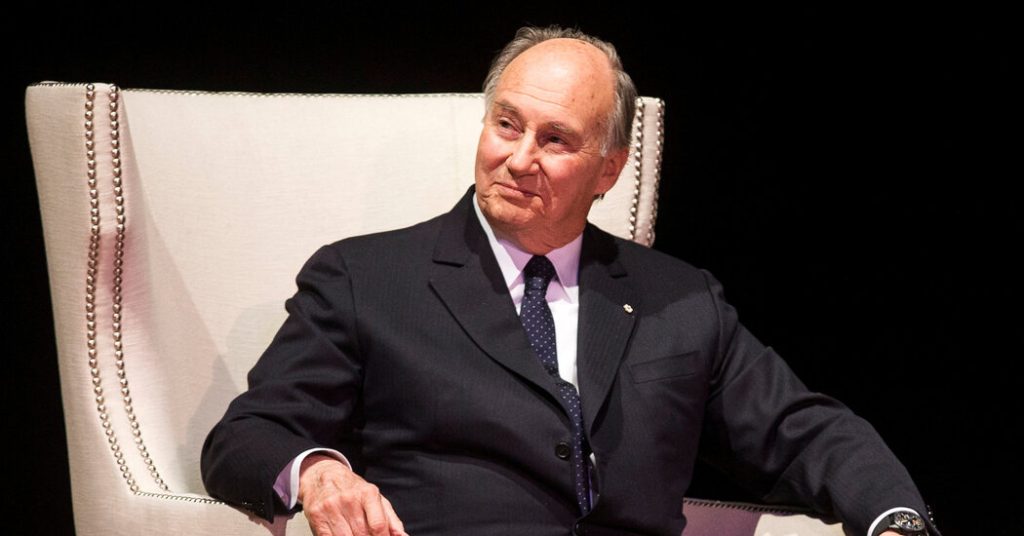His Highness Prince Karim Al-Hussaini, known to the world as the Aga Khan IV, passed away in Lisbon at the age of 88. As the spiritual leader of 15 million Ismaili Muslims across 35 countries, his life was a remarkable blend of spiritual leadership, entrepreneurship, and philanthropy. Rejecting the conventional separation of faith and worldly pursuits, the Aga Khan believed his entrepreneurial success enabled him to better serve his community, improving their quality of life and safeguarding their future. This unique perspective led him to amass considerable wealth estimated between $1 billion and $13 billion, derived from diverse investments spanning luxury hotels, airlines, racehorses, newspapers, and contributions from his followers. He used this wealth to fund a vast network of development projects, demonstrating a deep commitment to improving the lives of his followers and others in need.
The Aga Khan’s life was marked by unexpected turns. At the young age of 20, while a student of Islamic history at Harvard University, he inherited the title of Aga Khan from his grandfather, Aga Khan III, bypassing his father and other descendants. This decision, according to his grandfather’s will, stemmed from the belief that a younger leader, attuned to the rapidly changing world and its advancements, was necessary to guide the community through the complexities of the modern age. Thrust into leadership amidst the evolving geopolitical landscape of the mid-20th century, the young Aga Khan IV embarked on a path that blended tradition and modernity, faith and worldly engagement, in a manner rarely seen.
His leadership was tested by numerous crises affecting the Ismaili community, including the expulsion of Asians from Uganda in 1972 and the tumultuous aftermath of the Soviet Union’s collapse in Tajikistan. The Aga Khan’s influence and network of connections proved invaluable in these challenging times. His friendship with Canadian Prime Minister Pierre Trudeau facilitated the resettlement of thousands of Ismaili refugees from Uganda to Canada. This relationship, however, also led to controversy years later when Prime Minister Justin Trudeau, son of Pierre Trudeau, faced scrutiny over a family vacation at the Aga Khan’s private Bahamian residence, raising questions about potential conflicts of interest given the Canadian government’s financial support to the Aga Khan Foundation.
Following the collapse of the Soviet Union, the Aga Khan focused his attention on the Ismaili community in Tajikistan, particularly those residing in the mountainous Pamir region. He spearheaded substantial investments in infrastructure projects, including power generation, telecommunications, healthcare, microfinance initiatives, and the establishment of the University of Central Asia in Khorog. This commitment to development aimed to alleviate poverty and improve living conditions in the region. However, his influence and the reverence he commanded among the Ismaili population reportedly caused friction with Tajikistan’s secular leadership, who sought to curtail public displays of support for the Aga Khan.
Born in Geneva in 1936, Prince Karim Al-Hussaini’s early life was marked by privilege and cosmopolitanism. He spent his formative years in Nairobi, Kenya, attended the prestigious Institut Le Rosey in Switzerland, and pursued his higher education at Harvard University. His upbringing exposed him to diverse cultures and experiences, shaping his worldview and preparing him for the global leadership role he would eventually assume. Beyond his intellectual pursuits, he also indulged in his passion for sports, even representing pre-revolutionary Iran in skiing at the 1964 Winter Olympics. This blend of academic rigor, worldly experience, and personal passions reflected the multifaceted nature of his personality.
Beyond his spiritual leadership and philanthropic endeavors, the Aga Khan was also a shrewd businessman and a prominent figure in the world of horse racing. He inherited a significant equestrian empire from his father, Prince Aly Khan, who tragically died in a car accident in 1960. This inheritance included several horse farms in Ireland and France, sparking a lifelong passion for breeding and racing champion thoroughbreds. The Aga Khan achieved remarkable success in this field, owning and training numerous winning horses, including the filly Valyra, which won the prestigious Prix de Diane in 2012. However, his involvement in horse racing was not without its challenges, as evidenced by the infamous kidnapping of his prized stallion Shergar in 1982, a case that remains unsolved to this day. His refusal to pay the ransom demand highlighted his unwavering principles and resolve. The Aga Khan’s diverse interests, spanning from spiritual guidance and philanthropic work to business ventures and horse racing, showcased a complex and dynamic individual who left an indelible mark on the world.











